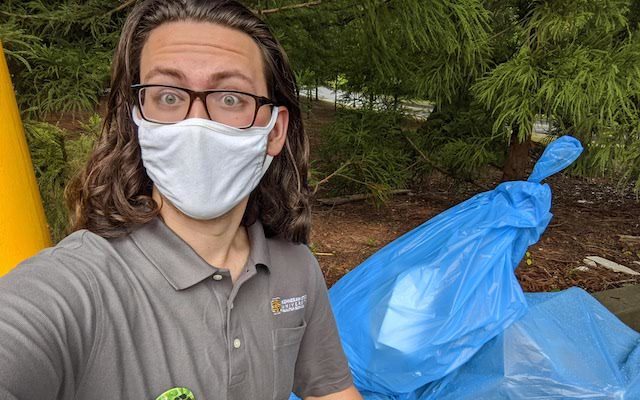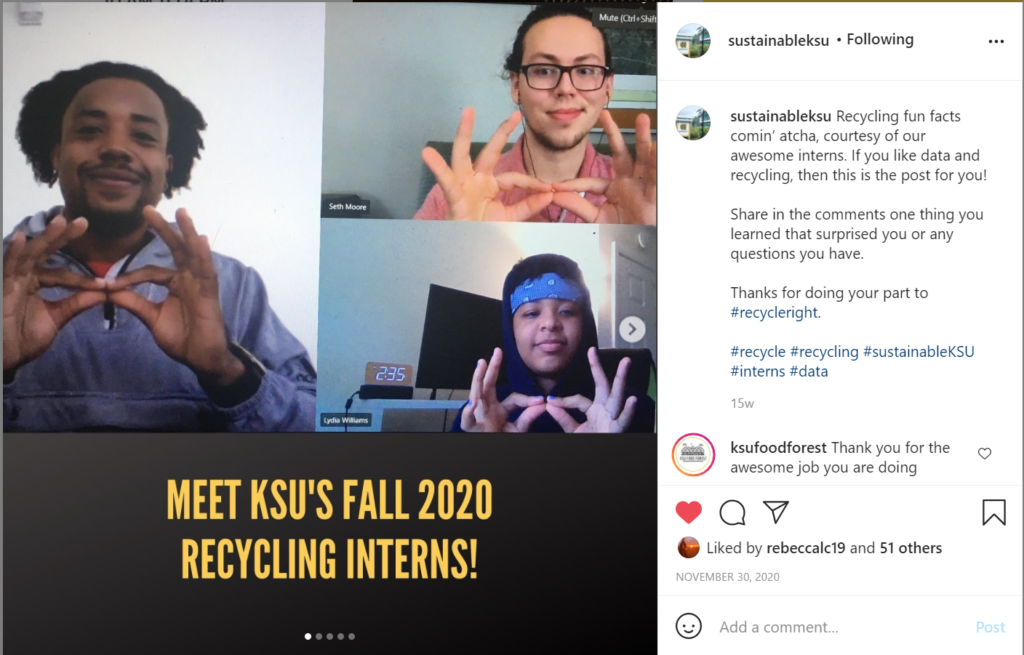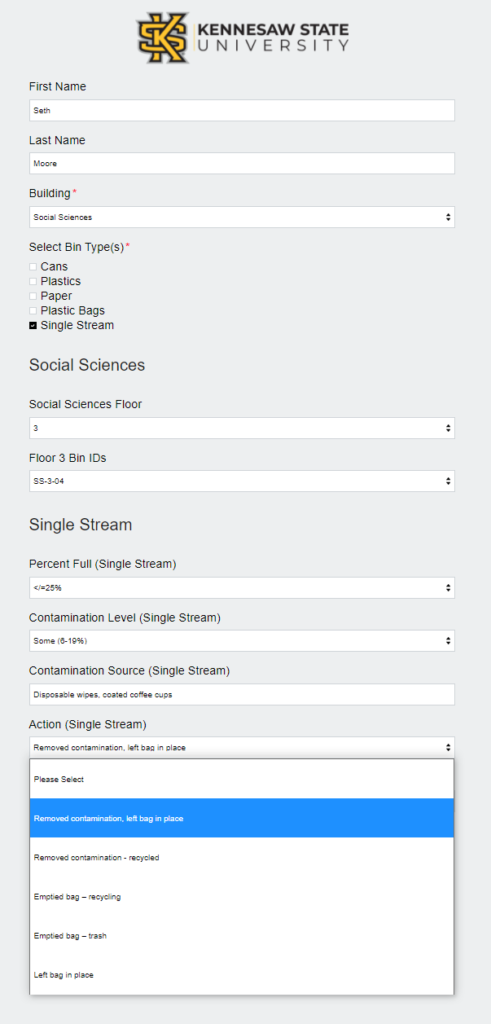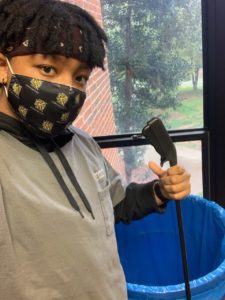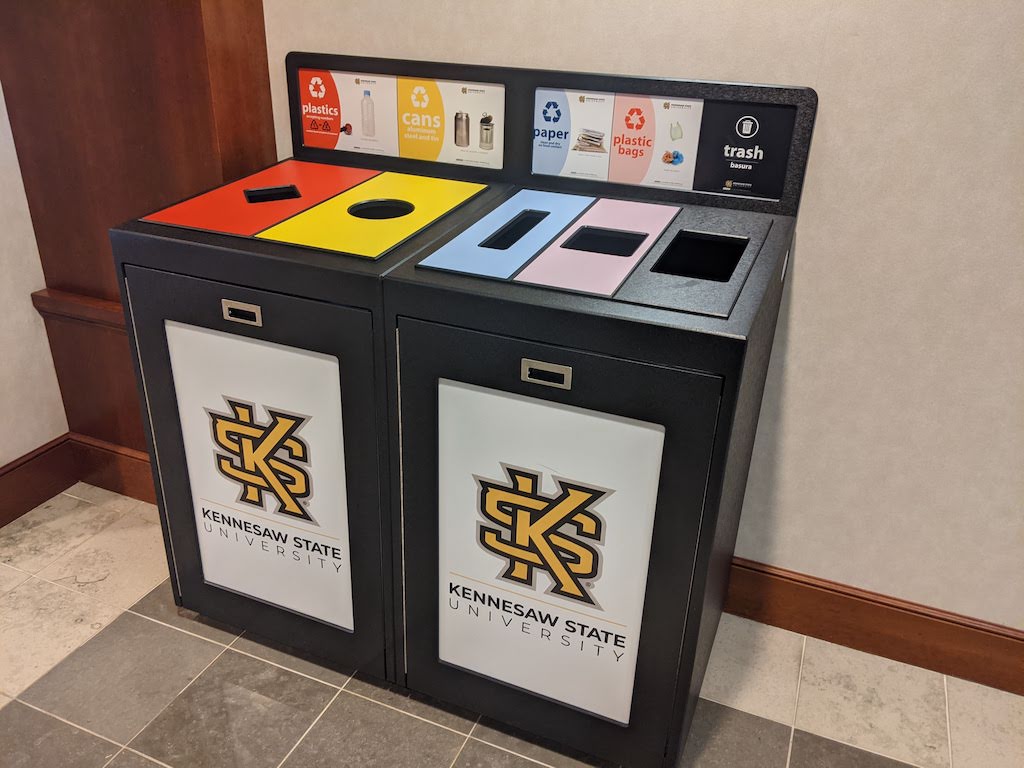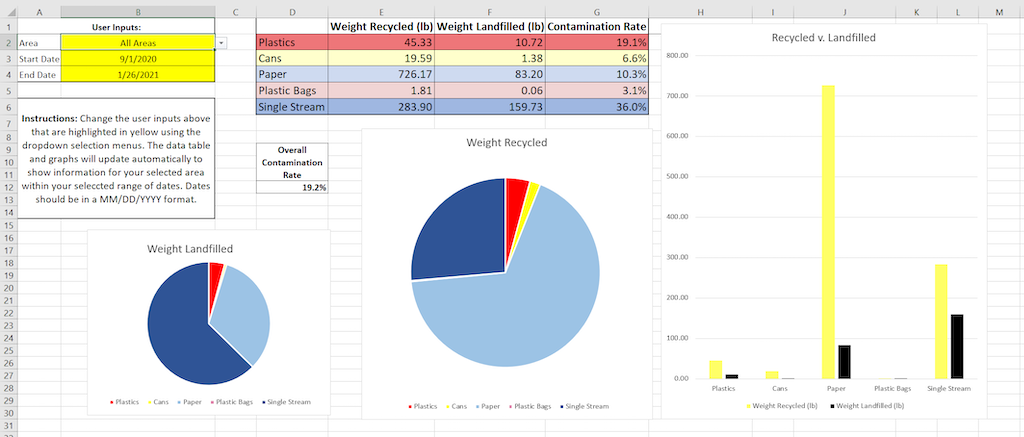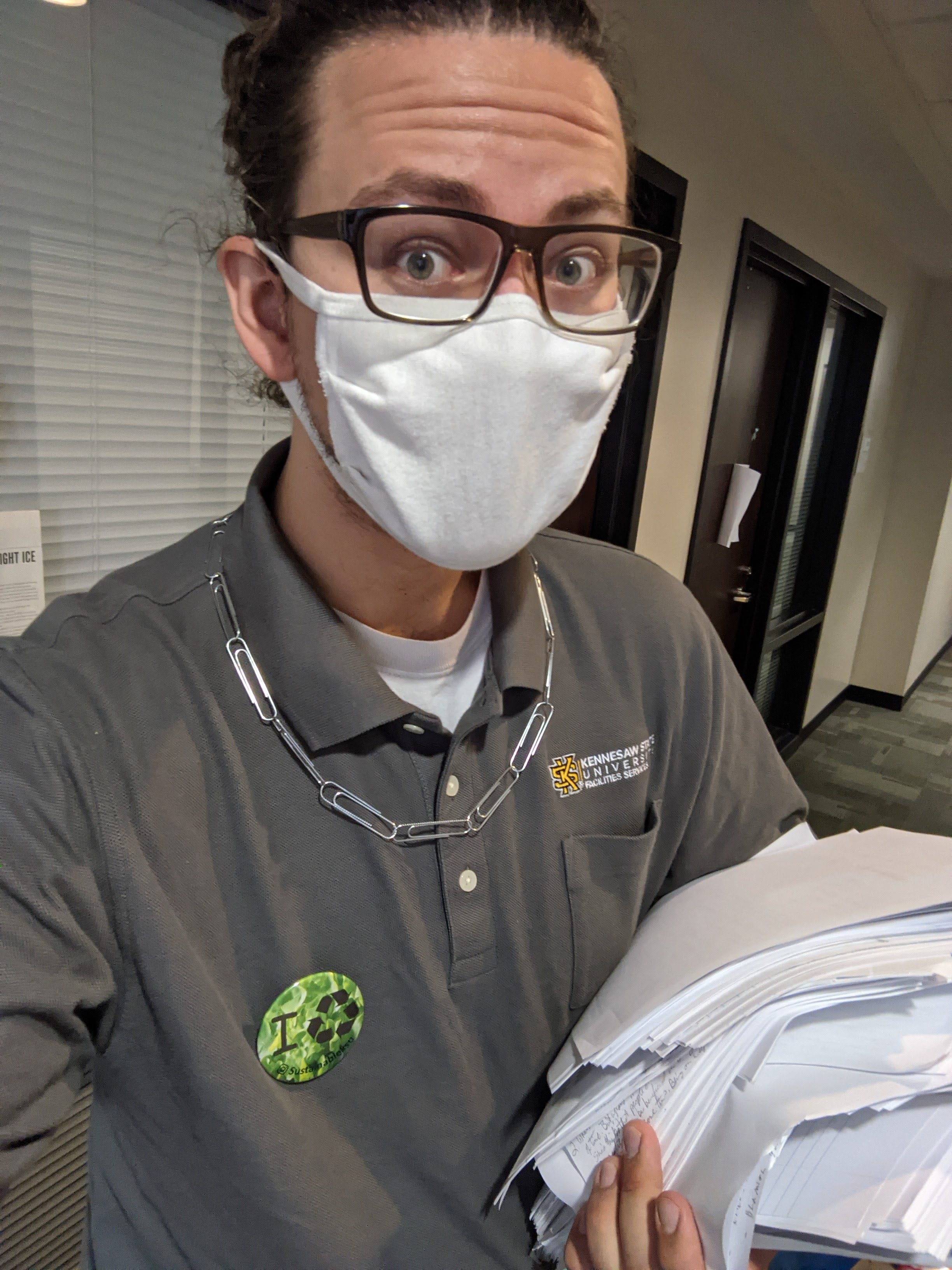Kennesaw State Contamination Tracking Project Employs Student Leadership
Kennesaw State University’s Office of Sustainability is tying together recycling collection, student internships and an innovative waste audit system into a single pilot program. Across 10 select campus buildings, a group of 4 interns have taken over recycling & waste collection. These student employees work in a rewarding position that does more than sort waste- it serves a greater sustainability effort.
This pilot program was first conceived as a way to both involve students and to collect data on the campus waste stream. Building Services usually facilitates waste collection at Kennesaw State, but the Office of Sustainability was getting lots of requests to work on improving the campus recycling program. The two offices decided to choose a few buildings which only the Office of Sustainability would begin to collect recycling & waste from, giving them the freedom to operate and improve upon the recycling in those areas.
“Our facilities director at the time had this idea- let’s really bring the students into the ownership of this recycling,” says Jennifer Wilson, Kennesaw State’s Sustainability Coordinator. Wilson describes recycling as a gateway for students to broader ideas of sustainability, and she values the creativity and energy students bring to the program.
The project is a combination of waste collection & informal waste audits. Each intern is scheduled to visit the buildings they service and inspect each waste receptacle, which is uniquely labeled. Using an online form supported by the Kennesaw State IT department, interns record key data points for each recycling bin including if the container is contaminated, what the contaminants are and if they sorted out the contamination or not. Once the mini-audit is completed, the students take out the waste and move on to the next container. However, the team from Kennesaw State stresses that this is about more than sorting out other people’s contamination.
“We’ve had a new intern start and they kind of want to be able to pick out every piece of contamination in the bin so we can have a beautiful looking recycling stream,” says Seth Moore, a student working on the project. “But it definitely takes a little bit of experience and training for new interns to be able to understand what the overall goal with this is- so we can change our recycling system so we don’t see that contamination in the first place.”
The data from the forms each intern submits is compiled and analyzed in a master Excel sheet. Using this research, which includes anything from frequency of service to the type of signage on each particular bin, a pool of information is created to guide changes to their recycling program.
“That’s let us see basically the equivalent of conducting a waste audit everyday,” Wilson says. “The data piece really lets us look at, okay, how do we address contamination differently going forward and how do we provide better outreach materials”.
The team uses the data to better understand contamination patterns and make the case to get support when they need it, whether it be a move towards source-separated recycling or getting a paper baler. Interns working on this program have created videos for outreach based on their findings and will use this data to guide waste collection scheduling in the future. The student interns share an integral role in informing the campus’s waste efforts moving forward and get a meaningful look inside a recycling career.
“I’ve personally taken a lot out of this education,” Moore says. “Being in a place that we feel like what we’re doing matters and the projects we work on actually get to impact change where we are on the local level, it’s a good feeling. So I feel like it gives us not only the experience but also the passion to go forward and do more projects like this in the future.”
Written by Eric Halvarson
This was originally shared in the March 2021 edition of News to ReUse, CURC’s bi-monthly newsletter.
If you have questions related to Kennesaw State’s programs, visit their website sustainability.kennesaw.edu or you can email Seth Moore, one of the student interns interviewed for this article at kmoor153@students.kennesaw.edu.
You can also follow them on Instagram @sustainableKSU
If you are interested in sharing a story from your campus for a CURC spotlight, submit an interest form here on our website.
